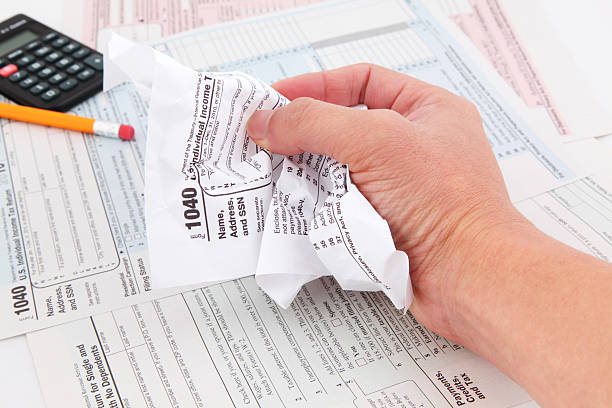What is Cheating on Exams?
You plan to take an extensive exam or test, but you didn’t take the time to study. Tou think of looking at someone else’s work or peeking inside your book to improve your score. You Look forward to achieving higher results. So, you are cheating on Exams. Children’s Area will help you find out more about cheating on exams.
Cheating Incorrectly represents a student’s knowledge and abilities. It harms the students and the ability of instructors to objectively and fairly evaluate students’ skills and knowledge. It also affects the university’s ability to fairly and honestly confirm students’ knowledge and capabilities.
Instructors are empowered to determine any cheating during their class since expectations for academic behavior are directly linked to the learning goals. Thus, each class will have different rules and expectations, or perhaps for each assignment within that same course!
Causes of Cheating on Exams
Mark rather than Knowledge?
Because the emphasis is put on passing examinations, most students fail during exams. More energy has been devoted to cheating on exams rather than learning because of the intense demand for jobs. Also, most interviewers are focused more on the marks they have received rather than the skills they get. As a result, most educational institutions today focus on teaching what it takes to get through an examination and entirely ignore imparting knowledge to students.
Lack of Confidence
In some instances, students cheat on exams because they don’t feel confident about their capabilities or abilities. If this type of feeling is present, students are prone to cheating in the hope of avoiding parents’ nagging. In the end, some students are brilliant, but the fear of failing and the inability to make adequate training can lead them to cheat. In reality, when cheating, most students regret it and promise that they will never repeat it.
Family Pressure
Family and societal pressures are another significant reason for students cheating on exams. Teachers, parents, and other relatives always with good intentions put too much pressure on students to achieve good grades. Parents think the grades will allow their kids into excellent schools and ultimately get good-paying jobs. All of this pressure gives students the belief that it’s okay to cheat on exams if it’s just to please their teachers and parents’ egos.
False Role Models
There are instances where students’ justification for cheating is that they know that everyone is cheating. In most cases, if students see the instructor cheating, the majority of the students think they are also entitled to the right to do it. When the educational system fails to reprimand students who cheat and praises those who pass the exams regardless of how they completed their work.
Technological Devices
Thanks to the internet, it becomes easy to get information on a smartphone or computer on a website. Search engines like Yahoo and bing encourage students’ cheating on exams. It also helps students have ready-made answers to their assignments. It’s simple for students from across the globe to get the exact solution to an assignment because they all utilize the same web page. Plagiarism is the norm of the day.
Pedagogical Problems
Today, instructors spend the majority of their time teaching lectures. In reality, it’s not modern to hand out assignments during class. Therefore, the assignments are usually stacked together and distributed during specific periods throughout the academic year. The latter presents a significant problem for students trying to do their homework while having fun. In the end, the workload becomes overwhelming, so it’s much easier for students to cheat rather than to complete it themselves.
Effects of Cheating on Exams
First and foremost, young children learn that cheating on exams is neither acceptable nor suitable at school. However, most of them can stray from this belief as they get older. More often than not, when a student is caught cheating and isn’t punished, they are likely to continue cheating. Studies have shown that cheaters in high school can’t stop this bad habit in college. The biggest issue is that the character is likely to influence one’s future career, consequently ruining their image.
Moreover, cheating on exams is an enormous problem for one’s career. Achieving a high mark due to cheating is a false representation of the test taker. It will also become difficult for tutors to identify students who require special training. It is a significant embarrassing situation when a cheating student is tested orally and cannot show their capabilities, as reflected by their scores. Those cheaters on exams do not have a chance to understand crucial concepts in class.
Finally, catching a red-handed cheater is the worst-case scenario of cheating on exams is when you are. When you find students cheating on exams, their reputation will suffer enormous damage. What is worse, the school might dismiss or expell them. Ultimately, it could hinder their ability to find a decent job or attend graduate school.
Possible Solutions to Cheating on Exams
A Psychological Counselor
The role of the psychological counselor to assist students is very important. Developing high-quality programs from the start of the academic year to address the guidelines for cheating on exams is necessary. It is also mandatory to inform students about the damages cheating can cause and urge educators to be flexible in exams. It is also necessary to avoid complex tests beyond students’ reach. Designing an evaluation system for education and establishing strict anti-fraud guidelines.
Applying Anti-Cheating on Exams rules
The supervision should be thorough and apply strict laws to students who can prove their innocence to be victims of this crime first. A good education at home is a vital element to ensure the integrity and credibility of the student throughout his career.
Restricting the Use of Electronic Devices
Educational institutions have to set out guidelines that they must follow. Some governments, for instance, are against using all kinds of electronic devices in examinations. Sure enough, it isn’t a violation of privacy laws since sufficient ethical consent is granted to students before administering any exam.
Changing the Modes of Testing to Avoid Cheating on Exams
Another approach is to eliminate or limit written exams, thereby expanding other methods of testing knowledge acquired by using oral assessment methods, including group and individual oral presentations.
A piece of Advice
When cheating, remember the following. Make sure that even if you get a high grade and pass the exam, it’s not because you’ve worked hard. you will undoubtedly feel guilt-ridden after cheating and don’t feel satisfied with your accomplishments. If you are discovered to be cheating, you’ll get brutally punished and embarrassed throughout the school year and even in the future! Stop cheating and work to do your best to make your parents proud of you.


It is true, but difficult to tackle.
http://www.noclegi-pracownicze-augustow.online
stx21